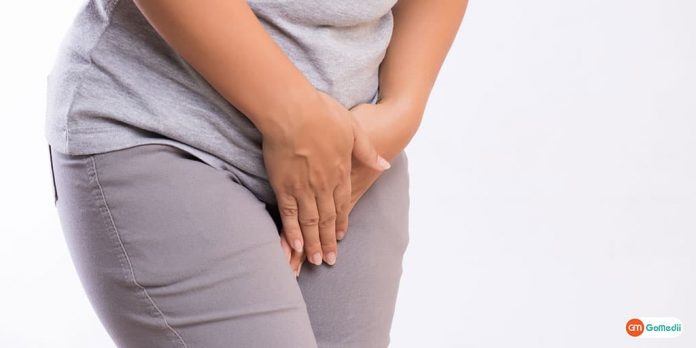Urinary incontinence is the loss of bladder control. Though it may be embarrassing to bring up in conversation with your doctor, it’s quite common. The reasons you may experience urinary incontinence can vary in severity, but it’s absolutely something you should discuss with your doctor.
Urinary incontinence tends to occur more often in people who are older. However, older age isn’t the only reason for someone to develop incontinence. And even if you are older, your age might not be the reason why.
Urinary incontinence is an uncomfortable condition that can negatively affect your life and how you approach daily activities. Talk to your doctor if you’re suffering from urinary incontinence – you might be surprised to learn that simple medical treatments and lifestyle adjustments can make all the difference.
What are the types of urinary incontinence?
The severity of urinary incontinence can vary between individuals. Maybe occasional leaking occurs during a sneeze or cough. In more serious instances, the sudden urge to urinate might strike so acutely that you are unable to make it to the bathroom.
From occasional, minor leaks, to more frequent bouts of accidents, the type of urinary incontinence you suffer from can shed more light on its root cause and how to treat it.
Types of urinary incontinence include:
Urge incontinence
Stress incontinence
Functional incontinence
Overflow incontinence
Mixed incontinence
Urge Incontinence
As the name suggests, urge incontinence occurs when a sudden, intense urge to urinate occurs. It’s usually followed by an involuntary loss of urine. The need to urinate often throughout the day and night may be indicative of urge incontinence.
Stress Incontinence
This type of incontinence occurs anytime you put a physical stress or pressure on your bladder via strenuous exercise, intense laughter, coughing, or sneezing.
Functional Incontinence
Functional incontinence is incontinence as a result of a physical or mental impairment. It’s incontinence that occurs because of physical symptoms that impede your normal abilities. Like severe back issues that prevent you from being able to make it to the bathroom in a prompt manner.
Overflow Incontinence
Overflow incontinence occurs when a bladder doesn’t completely empty. If you suffer from overflow incontinence you may experience regular, constant urine dribble throughout the day.
Mixed Incontinence
As the name suggests, mixed incontinence occurs when you experience more than one of the above types of urinary incontinence.
What Causes Urinary Incontinence?
So, now that we have a better grasp of exactly what urinary incontinence is and the different types, what exactly causes it? Well for one, it’s important to remember that urinary incontinence isn’t a condition on its own.
In most cases it’s a symptom with roots in everything from poor habits to more serious, underlying physical and medical conditions or problems. If you’re experiencing urinary incontinence, an evaluation by your doctor is the best way to get at the root of what’s causing it. Otherwise, here are 5 reasons you may experience urinary incontinence
1. Your Diet
Frequently, cases of temporary urinary incontinence can be traced to simple health, lifestyle, and dietary choices you make every single day. Your bladder might be stimulated by certain beverages, food ingredients, or medications that act as diuretics and increase your urine volume.
Be mindful how your body reacts to:
Caffeine (coffee, tea, soda)
Alcohol
Heart and blood pressure medications
Large doses of vitamin C
Muscle relaxants
Sedatives
Sparkling water, flavored water, and other carbonated drinks
Artificial sweeteners
Spicy foods
Foods high in sugar or acid (i.e. citrus fruits)
Chocolate
If you suffer occasionally from urinary incontinence, keep a food diary. You may find the culprit is something you consume or indulge in on an everyday basis and can easily be eliminated and adjusted.
2. A Treatable, Underlying Condition
As stated above, urinary incontinence is often a symptom of a larger, underlying condition. Often, it’s something that’s relatively simple and easy to treat, such as a urinary tract infection. Bladder infections can affect how often and how severely you have to urinate, leading to incontinence.
Though it seems like the exact opposite problem, constipation can be another common cause of urinary incontinence. Since the rectum is located near and shares many of the same nerves as the bladder, hardened stool that is difficult to pass may stimulate the shared nerves. This overreaction can cause you to feel the urge to urinate frequently.
3. Pregnancy and Childbirth
If your urinary incontinence is persistent and doesn’t change with simple lifestyle adjustments, and doesn’t seem to stem from another condition, it may be indicative of other changes your body is undergoing, such as pregnancy and childbirth. The hormonal changes that occur during pregnancy along with an increased fetal weight often lead to stress incontinence.
Additionally, childbirth via vaginal delivery can greatly affect the bladder. Bladder control muscles may be weakened. Nerves and supportive tissues in the bladder can also be damaged, which can cause the pelvic floor to drop.
When that occurs, the usual positions of the uterus, rectum, bladder, or small intestine can shift and get pushed down. If they protrude into the vagina, they can be the cause of incontinence and should be addressed medically.
4. Age
While age is not always a factor, it is a common cause of urinary incontinence. Involuntary bladder contractions are more frequent when you get older. With age comes change and as the bladder ages, its capacity to store urine may decrease.
Another change that occurs with age in women is menopause. After menopause, less estrogen is produced. Estrogen is a huge factor in keeping the lining of the urethra and bladder strong and healthy. Incontinence may occur as a result of tissue deterioration during menopause.
5. More Serious Physical and Neurological Issues
Regardless of the severity of your urinary incontinence, you should always seek the help and advice of your doctor. In some cases, urinary incontinence can indicate a much more serious underlying condition or neurological issue.
An obstruction along your urinary tract can block your body’s natural disposal. An obstruction can range from urinary stones (masses that form in the bladder) to more serious issues like a tumor. Which is why it’s always important to be sure that the cause of urinary incontinence isn’t something much more serious.
Additionally, neurological disorders can cause urinary incontinence by interfering and disrupting nerve signals that are tied to bladder control. These disorders can include:
Parkinson’s Disease
Multiple Sclerosis
Brain tumor
Spinal injury
Complications due to a stroke
When to see a doctor
Urinary incontinence may be embarrassing or uncomfortable to bring up, but if it’s a constant distress on your everyday life you should discuss it with your doctor. Especially considering that urinary incontinence is often a symptom to a larger, sometimes more serious problem.
Prevention
While some of the larger, underlying conditions that cause urinary incontinence aren’t always preventable, there are ways you can reduce your risk of developing it. Healthy lifestyle habits that can help decrease your risk of urinary incontinence include:
Maintaining a healthy diet and weight
Don’t use tobacco products
Avoid bladder irritants like alcohol, caffeine, and acidic foods
Prevent constipation with a healthy amount of fiber intake
Practice pelvic floor exercises
If urinary incontinence is affecting your life, the best thing you can do is visit your doctor. Schedule a consultation with your Florida Woman Care of Jacksonville OB/GYN. We will assess you and help provide the guidance you need to find the cause of your urinary incontinence and treat it.


























